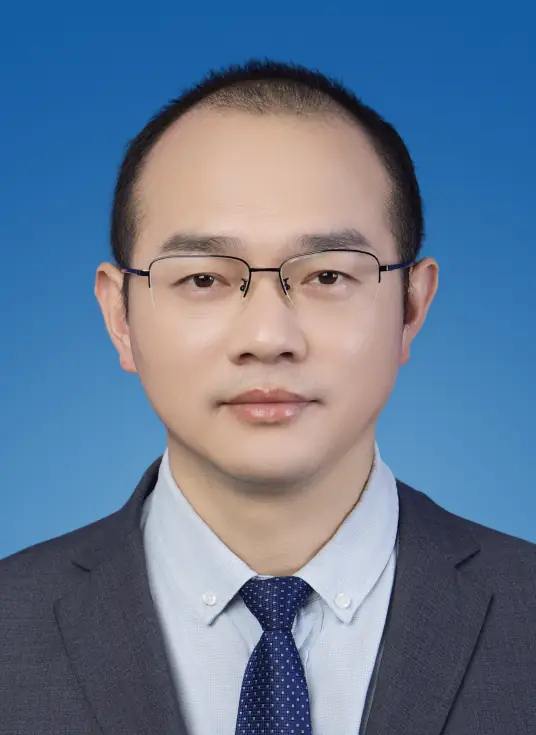| Prof. Yulin WangWuhan University, China Yulin Wang is a full professor in the School of Computer Science, Wuhan University, China. His research interests include image and video processing, digital rights management, information security, intelligent system, e-commerce, IoT, code clone and so on.He got his PhD degree from University of London, UK. He got his master and bachelor degree from Huazhong University of Science and Technology(HUST)and Xi-Dian University respectively, both in China. Before joining the Wuhan University, he has worked in Hi-tech IT industry, including HUAWEI© and national research institute, for more than ten years. He has involved more than 15 national and international research projects. In recently 10 years, Prof. Wang has published 1 book, and 50+ journal and conference papers, including in IEEE TIP. He holds 10 authorized patents. Prof. Wang served as EiC of 2 international journals and reviewer of top IEEE and ACM journals. He also served as reviewer of Innovative talents projects and national research funds, including National High Technology Research and Development Program of China. Prof. Wang was the external PhD advisor of Dublin City University, Ireland during 2008-2010. In recently 10 years, Prof. Wang served as chairman of more than 10 international conferences, and keynote speakers in more than 20 international conferences. Besides UK, he visited US, France,Italy, Portugal,Croatia, Australia, Germany, korea, Ireland,Singapore, Malaysia, Japan, and Hong Kong. In addition, Prof. Wang has been appointed as the deputy director of Hubei provincial science and technology commission (CAPD) since 2014. Speech Title: Intelligent Multimedia Data Hiding: Techniques and Applications Absrtact: Digital music, podcasts, live and recorded webinars, video calls, and streaming video have changed the way in which we communicate, and have become ubiquitous in virtually every organization. We employ these methods to convey ideas, train our employees, engage our customers, and of course entertain. The question is, does digital multimedia pose a threat? Could these channels be used to communicate information covertly, ex-filtrate intellectual property, share insider information, be used to convey command and control information, or provide the needed enabling technology for advanced persistent threats? Additionally, since the size of multimedia files are typically much larger than a single digital photo, does this mean that larger payloads of hidden information could be exchanged or leaked by exploiting weaknesses inherent in multimedia carriers? Or, on the contrary, is the human auditory system sensitive to even small changes in multimedia information such that we could detect anomalies caused by embedding hidden information in such streams? In this talk, we present the intelligent multimedia data hiding techniques and their possible application. We will cover some of the earliest and simplest forms of data hiding in digital multimedia and then move to some of the lasted innovations in order to provide insight into these questions. Some of the research branches, called reversible data hiding, is also depicted. |
| Prof. JIanfeng LuWuhan University of Science and Technology, China He is a specially-appointed professor of the "Chutian Scholars" program in Hubei Province, a recipient of the Zhejiang Provincial Outstanding Youth Fund, a third-level professor at Wuhan University of Science and Technology, a doctoral supervisor, an executive committee member of the CCF Internet of Things/Ubiquitous Computing Special Committee, a review expert for the National Key Research and Development Program's "Internet of Things and Smart Cities" key special project, and a review expert for science and technology plans in Hubei Province, Zhejiang Province, Shanghai, Guangdong Province, Jiangxi Province, Hainan Province, and Heilongjiang Province. Mainly engaged in research on edge intelligence, federated learning, and swarm intelligence computing, drawing on the strategic thinking of game theory and integrating multi-disciplinary knowledge such as optimization theory, Lyapunov optimization, approximation algorithms, and machine learning, to jointly solve problems such as proportional fairness incentives, service exchange, and the competitive dilemma in crowdsourcing in federated learning and swarm intelligence computing. In recent years, as the first author or corresponding author, I have published over 50 papers in influential academic journals and conferences such as IEEE JSAC, IEEE TMC, IEEE TSC, IEEE TIFS, IJCAI, AAAI, ACM TOIT, IEEE TH, IEEE TVT, IEEE TCSS, IEEE TCE, and IEEE TETCI. I have also been granted 8 national invention patents. I have successively presided over 4 projects funded by the National Natural Science Foundation of China and 7 provincial and ministerial-level projects. Many of the postgraduate students I have guided have been awarded the titles of provincial or university-level outstanding graduates, outstanding master's theses, the National Scholarship for Postgraduates, and the President's Special Award. After graduation, many of them have continued their studies for a doctoral degree at prestigious universities such as Shanghai Jiao Tong University, Southeast University, Zhejiang Normal University, and Wuhan University of Science and Technology. |


